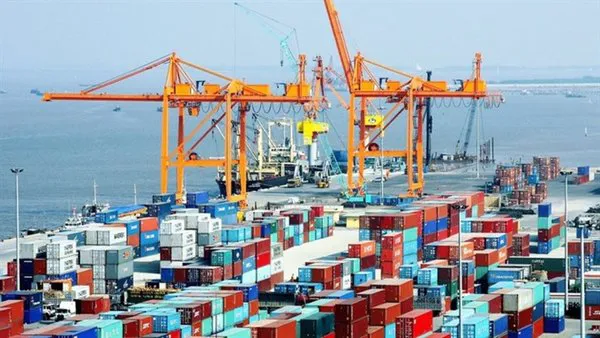Slowdown in FDI’s export growth to impact Vietnam’s economy in 2020
A slowdown in export growth of the foreign-invested sector could have a negative impact on Vietnam’s economy in 2020, according to SSI Securities Corporation, Vietnam’s largest brokerage house.
As exports from foreign direct investment (FDI) firms currently account for 69% of Vietnam’s export turnover, the sector plays a decisive role to the country’s exports, stated SSI report.
| Illustrative photo. |
“Export growth of the FDI sector is slowing down at an alarming rate of 5% in the first nine months of 2019, much lower than that of the domestic sector at 16.2%. A number of key export products witnessed low growth rate, or even decline,” said the report.
Specifically, phone and parts recorded are the largest export staple but only expanded by 2% during the January – September period, slower than the 16% growth recorded in the same period of last year.
Similarly, exports of electronic products only grew 11.7% year-on-year against the 14% of the comparable period in 2018, textile exports up 8% (versus 15% in the same period last year), equipment with 1.9% (versus 29% in the same period last year), and cameras down 25% (versus 43% in the same period last year).
SSI attributed inefficient operations of multinationals such as Samsung and a slowdown of global economic growth to a decline in the FDI sector’s exports. Such trend could persist and impacts Vietnam’s economy in 2020, stated the report.
Nevertheless, there have been spotlights of the sector’s exports. Shipments of car parts and accessories totaled US$3.9 billion in nine months, up 13.7% year-on-year, and those of wooden products were US$3 billion, up 18.4%, with the latter experiencing an export growth below 10% in the last two years.
SSI said wooden products are subject to high import tariffs due to the US – China trade war, so there could have been a wave of relocation of wood product manufacturing plants to Vietnam.
Vietnam’s exports of wood and wooden products to the US in the first nine months reached US$3.65 billion, up 34% year-on-year, higher than the rates of 19% and 15% recorded in the same period of 2017 and 2018, respectively.
Overall, FDI inflow to Vietnam remains positive, ensuring strong growth of the FDI sector and spillover effects to domestic services and supporting industries, stated SSI.
Low growth rate in export markets in 2019 and may be in 2020 could hamper Vietnam’s economic growth. Nevertheless, this could be an opportunity for Vietnam to restructure manufacturing sectors and diversify export products.
SSI expressed concern over the deficiency of Vietnam’s infrastructure system and increases in input prices. Higher land rental fees and surge in labor costs could make Vietnam less attractive in the eyes of investors, particularly as the country’s appeal is still dependent on cheap labor.
Low capacity of road and sea transportation is an issue that should be promptly addressed.
Changes in policies management in Vietnam are key to continue attracting FDI, stated the report. Free trade agreements and opportunities from the trade war only bring substantial benefits to Vietnam if bottlenecks in infrastructure and human resources are properly removed.
By then, the FDI sector, along with the private sector, could truly turn into two driving forces for Vietnam’s rapid and sustainable economic development, concluded the report.












